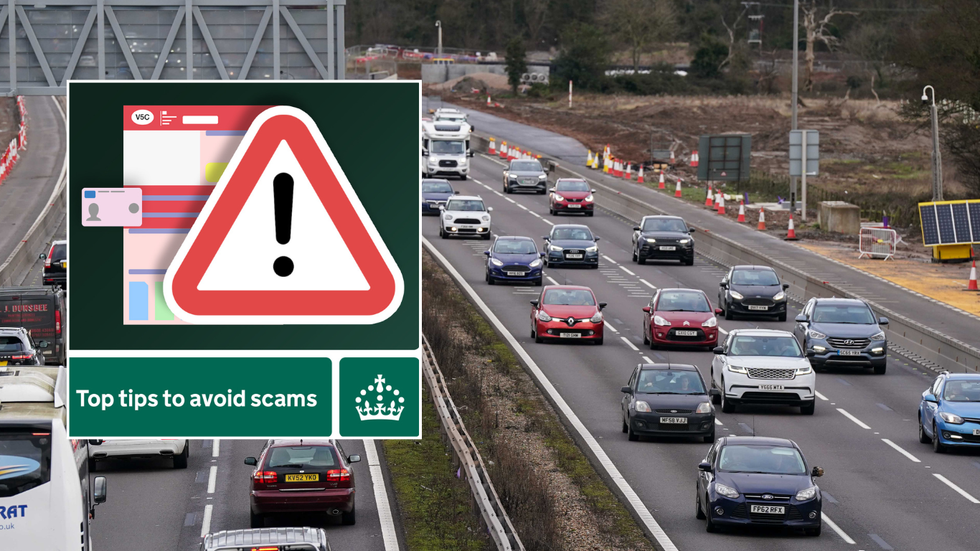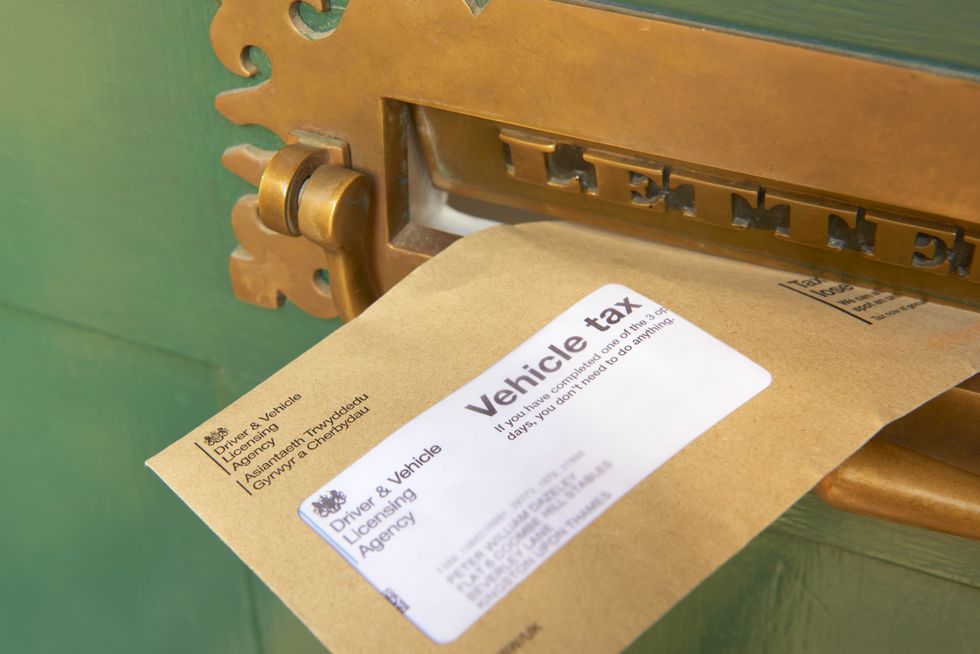WATCH: Rachel Reeves announces new car taxes at the Autumn Budget
GB NEWS
DVLA warns drivers to avoid fraudulent emails and texts from fake accounts
Don't Miss
Most Read
Latest
The DVLA has issued a warning to drivers, offering tips on how to avoid scams, including emails and text messages claiming to be from the agency.
The warning comes as millions of drivers face new car taxes this week, with the DVLA urging motorists not to fall for fraudulent practices claiming to be from the Government body.
Earlier this week, changes to the Vehicle Excise Duty (VED) came into effect following an announcement at last year's Autumn Budget by Chancellor Rachel Reeves.
One of the most crucial changes to the tax rates was for electric car owners who, from April 1, would be subject to VED payments for the first time as well as the Expensive Car Supplement.
Do you have a story you'd like to share? Get in touch by emailingmotoring@gbnews.uk

The DVLA issued the car tax warning during the same week as changes to Vehicle Excise Duty come into effect
PA/DVLA
Electric cars registered on or after April 1 would need to pay the lowest first-year rate of vehicle tax, which will cost them £10. From the second tax payment onwards, they will go to the first level of the standard rate of VED, which is £195.
Meanwhile, the Expensive Car Supplement, otherwise known as the luxury car tax, applies to vehicles priced over £40,000, with some EV owners now needing to pay £425 annually.
As millions begin to pay more, the DVLA has issued a reminder to motorists on how they can keep themselves safe from vehicle and driving licence scams.
The latest figures from the agency found that in 2024, almost 20,000 customers called the DVLA’s contact centre to report fraudulent activity.
The DVLA shared: "With fraudsters increasingly using more sophisticated ways to trick their victims, it has never been more important for motorists to be vigilant and aware of how to recognise fraudulent emails, texts, websites and calls."
Offering tips to drivers, the DVLA urged road users to only access official information about the DVLA and its services is GOV.UK.
The agency warned that using any other website could mean drivers get charged more for services that are either cheaper or completely free on the Government website.
Drivers should also never share their driving licence or vehicle information online. "Getting your driving licence is a big milestone, and you may be tempted to share your new shiny licence or V5C (log book) on social media," the agency stated.
Fraudsters will often send emails or text messages to unsuspecting victims asking them to confirm personal details, such as bank or payment information, according to the DVLA, with many even sending messages that claim drivers could be entitled to a hefty vehicle tax refund.
The agency added: "The DVLA will never ask you for your bank account details or ask you to confirm payment details.
"We will only ask you to confirm your personal details by email or text if you have a live enquiry with us.
"And vehicle tax refunds are issued automatically – never via an email with a link. If you receive one of these emails or texts, do not click on any links. Instead, report it to the National Cyber Security Centre and delete it immediately."
LATEST DEVELOPMENTS:

From April 1, new changes to Vehicle Excise Duty came into effect
GETTY
Drivers can report scams or any other suspicious activity to the National Cyber Security Centre, as well as report online scams to Action Fraud.













